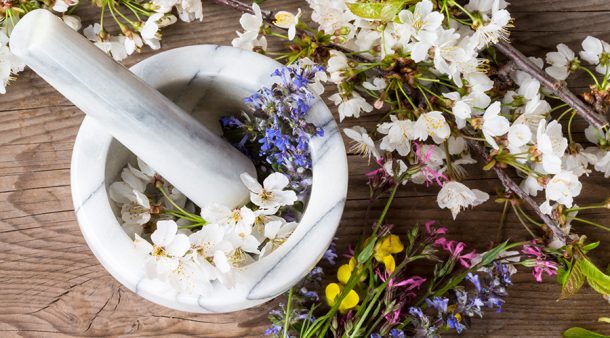
Rheumatoid Arthritis: Causes, Symptoms, and Holistic Approaches
Rheumatoid arthritis (RA) is a long-term inflammatory condition. It mainly affects the lining of the joints, often leading to deformities in the hands and feet. This autoimmune disorder impacts around two million Americans. It usually starts between the ages of 25 and 50, but it can begin at any age.
Causes and Risk Factors of Rheumatoid Arthritis
Rheumatoid arthritis can result from various factors, including autoimmune reactions, genetics, and infections. In RA, the immune system’s white blood cells mistakenly attack the lining of the joints. Additionally, waste products from the large intestine might enter the bloodstream, causing inflammation. This reaction leads immune cells to target healthy joint tissue, which results in joint pain, stiffness, and swelling.
RA often involves an imbalance in the immune system. Specifically, it relates to an overactive Th1 response (a type of T-helper cell) that dominates the Th2 response. When there is this imbalance, it causes an increased inflammatory reaction against the body’s tissues.
Symptoms of Rheumatoid Arthritis
- Joint stiffness, especially upon waking, lasting over an hour
- Swelling in fingers, wrists, and other joints
- Pain and tenderness in affected areas
- Fatigue, fever, and weight loss
- Worsening symptoms in cold, damp conditions
Traditional Chinese Medicine (TCM) and Rheumatoid Arthritis
In Traditional Chinese Medicine (TCM), rheumatoid arthritis is often linked to an imbalance in the body’s elements. It is commonly associated with a disturbance in the Earth element, which controls the Spleen and Stomach. This imbalance can lead to an accumulation of “Dampness” and “Cold” in the joints, causing pain and stiffness. Additionally, when the Kidney’s “Yang” energy is weak in RA patients, it adds to their symptoms.
Chakras and Energy Flow in Rheumatoid Arthritis
From an energy viewpoint, RA can connect to blockages in the Sacral and Root Chakras. The Sacral Chakra (Svadhisthana) relates to emotions and the body’s fluid systems. Meanwhile, the Root Chakra (Muladhara) governs stability and physical vitality. When these chakras are blocked, it can cause joint pain and stiffness.
Emotional Aspects of Rheumatoid Arthritis
Emotionally, rheumatoid arthritis is often linked to suppressed anger, frustration, or feeling stuck in life. These emotions can contribute to the body’s stress response, leading to inflammation and an imbalance in the immune system. Techniques like meditation, energy healing, and emotional release can help manage these triggers, which may reduce inflammation.
Dietary Considerations for Managing RA
Food allergies and sensitivities can play a role in rheumatoid arthritis. Certain foods can worsen inflammation and trigger autoimmune responses. The Elimination Diet is useful to identify and remove problematic foods. Common allergens and inflammatory foods include:
- Dairy (cow’s milk, cheese)
- Wheat and gluten-containing grains
- Corn
- Eggs
- Citrus fruits
- Nightshades (potatoes, tomatoes, peppers, eggplant)
Anti-Inflammatory Diet: A diet like the Paleo approach can benefit RA patients. It focuses on whole foods, lean proteins, vegetables, and healthy fats. It also avoids processed foods, refined sugars, and common allergens.
Holistic Approaches to Rheumatoid Arthritis
- Chiropractic Care: Adjustments can help relieve joint pain and improve movement by correcting structural imbalances.
- Acupuncture: This practice stimulates specific points to balance the body’s energy, reduce inflammation, and lessen pain.
- Herbal Remedies: Herbs like turmeric (curcumin), boswellia, and green tea have natural anti-inflammatory properties that support joint health.
Supplement Protocol for Rheumatoid Arthritis
- Omega-3 and Omega-6 Fatty Acids: These essential fatty acids act as powerful anti-inflammatory agents. Omega-3s, found in fish oil, and Omega-6s, found in evening primrose oil, help reduce inflammation in the body.
- Glucosamine with Chondroitin: These supplements support the formation and repair of cartilage and joint fluid. They are vital for maintaining joint health in RA patients.
- Hyaluronic Acid (HA): HA is essential for joint lubrication and health. It helps maintain cushioning within joints.
- MSM (Methylsulfonylmethane): This sulfur-based nutrient helps keep cartilage soft and spongy, reducing pain and inflammation.
- COX-2 Inhibiting, Anti-Inflammatory Herbs: Herbs like turmeric, boswellia, bromelain, and ginger naturally inhibit COX-2 enzymes, reducing inflammation without the side effects of NSAIDs.
Lifestyle and Emotional Balance in RA
- Stress Management: Stress reduction techniques such as yoga, deep breathing exercises, and mindfulness can help balance the immune system and reduce inflammatory flare-ups.
- Chakra Healing: Practices that open and balance the Sacral and Root Chakras, such as Reiki, crystal healing, and affirmations, can support emotional and physical stability.
Conclusion
Rheumatoid arthritis is a complex condition involving the immune system, structure, chemistry, and emotions. Addressing these aspects through a holistic approach that includes dietary changes, supplements, Traditional Chinese Medicine practices, and emotional healing can significantly improve the quality of life for those with RA. This integrative strategy promotes balance in the body’s systems, reducing inflammation and supporting joint health.


